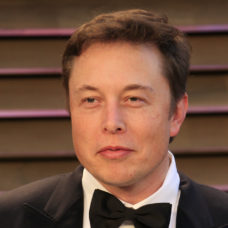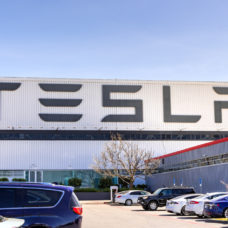With a Hyperloop pod reaching 201 mph, the German team from Munich University won the Hyperloop Pod Competition II.
The same team won the fastest pod award during the first contest.
On August 12th, 2013, Elon Musk first revealed the Hyperloop concept in a white paper, and, four years later, the project that would revolutionize terrestrial transportation is coming to fruition.
Answering Musk’s call to innovation, private companies have been doing much of the work in developing the Hyperloop pods and tracks that may one day utilize Musk’s freshly bored tunnels.
#Munich team wins #HyperloopPodCompetitionII with a top speed of 201 mph.Click To TweetThe Dawn of the Hyperloop era
Hyperloop is a futuristic transportation system that uses pods traveling at very high speeds in a total vacuum–in order to limit friction.
The aim is to reach speeds above 1200 km/h, which would allow crossing the United States from coast to coast in just 4 hours if a track that big was ever built.
For an Indian team that participated in the Hyperloop Competition, Mumbai from Ahmedabad in 40 minutes is the ideal goal.
Rather than developing the technology himself through his companies, the Musk opted for decentralized development to accelerate research.
Via SpaceX, which built a one-mile test track, he launched a Hyperloop Pod Contest series, encouraging students to innovate via competition.
Dozens of labs from universities and research centers around the world are working on the development of their own pod module (small scale capsules) that have been put to test in two contests already.
With each contest (and thanks to other non-SpaceX initiatives) we’re getting a little closer to Hyperloop as a reality.
Hyperloop Pod Competition II: The University of Munich Team do it Again
Under the auspices of Elon Musk, SpaceX recently held the Hyperloop Pod Competition II from August 25th to the 27th on its test track, located in Hawthorne, California.
The contest, centered around achieving the highest maximum speed, has seen 24 teams from a dozen countries compete to be the developer of the fastest pod.
“Congratulations to WARR team from Tech Univ Munich for winning 2nd Hyperloop competition!” Musk announced the winner in a tweet, “Peak speed of 324 km/h, which is over 200 mph!!”
The German team from WARR (Scientific Workgroup for Rocketry and Spaceflight), at Technical University of Munich, had already won the fastest pod award during the first competition in January 2017.
Their machine had broken all records by reaching the speed of 56 mph. For the second competition, the team designed a version significantly lighter than before.
Team WARR’s pod was equipped with its own propulsion system this time, using an electric motor that can operate independently of the capsule, reaching 201 mph during the competition.
SpaceX provided competitors with an electric pace vehicle which is placed behind the capsule to propel it. Teams could thus focus on other technical challenges such as aerodynamics and friction limitation.
The propeller, built by SpaceX and Tesla, could get up to 220 mph during tests, faster than the winning team’s vehicle. And both are faster than Hyperloop One’s pod, XP-1, which clocked in 192 miles per hour in a test last July.
It seems Musk has done well to stirr innovation and development for Hyperloop technology.



















Comments (0)
Most Recent